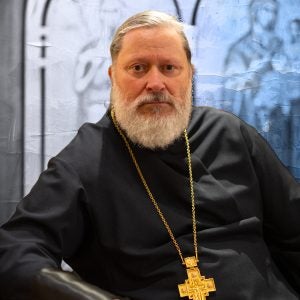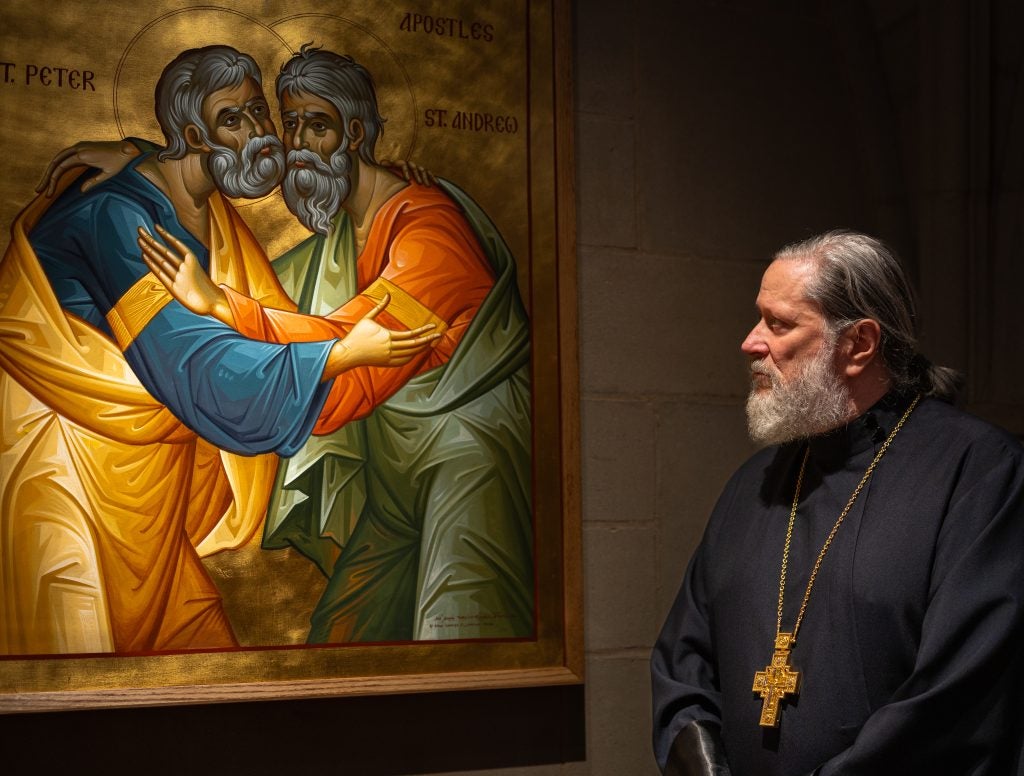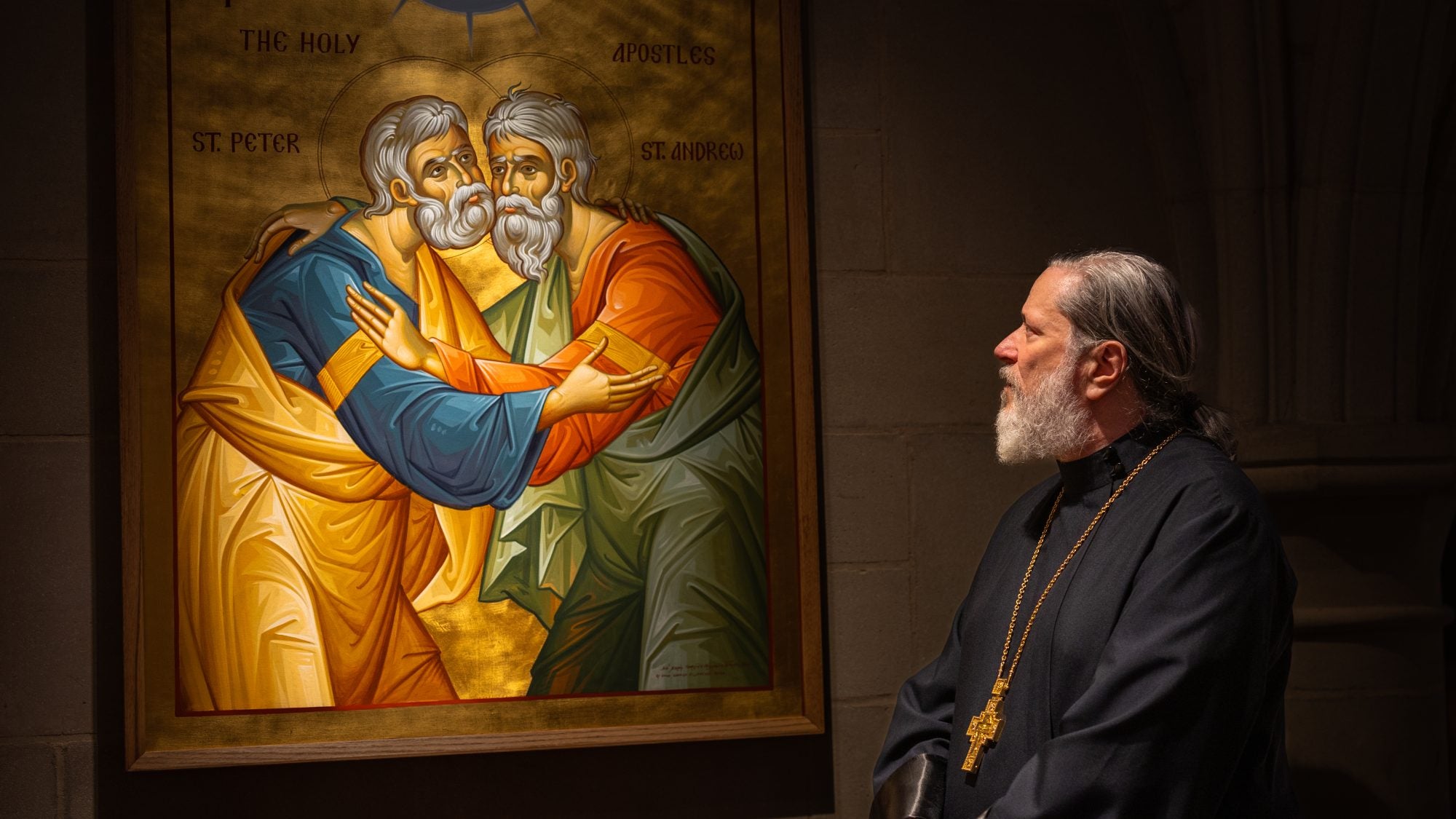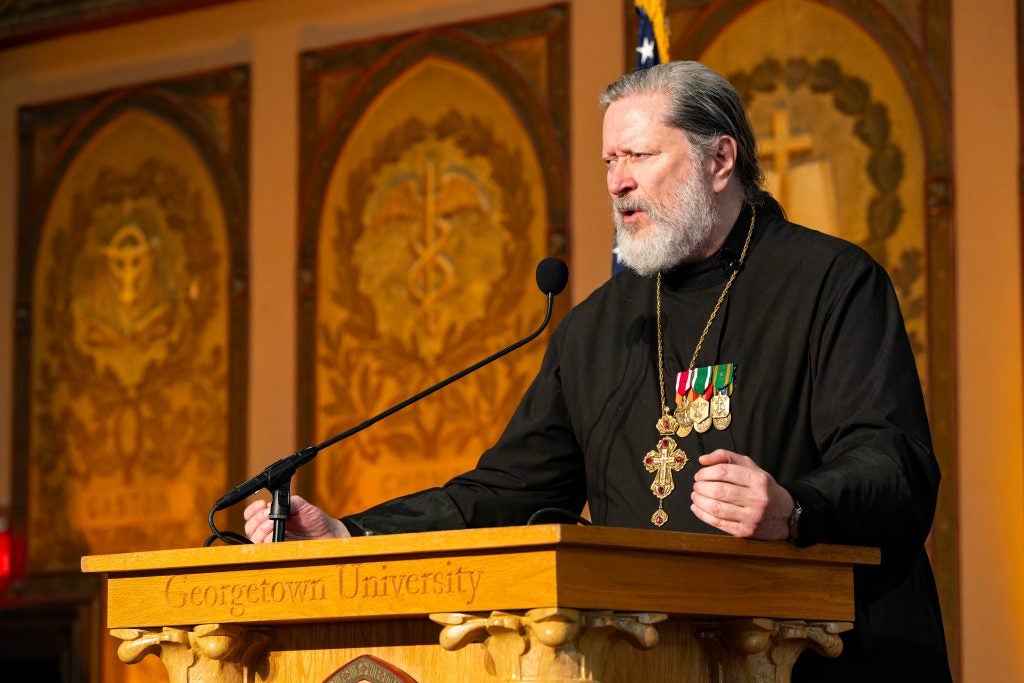This story is part of Georgetown Faces, a storytelling series that celebrates the beloved figures, unsung heroes and dedicated Hoyas who make our campus special.

Fr. David Pratt will tell you that being an Orthodox priest means everything to him, even if his path to the clergy was not a straight line.
Growing up in the Los Angeles area, Pratt noticed the small movements in his heart that nudged him closer to his faith. In first grade, Pratt witnessed his first funeral at his parochial school’s church. Even at his young age, the ritualistic experience made him think about faith and how he would one day participate in funerals for his own family members.
“It left a strong impact on me, very visceral. I can still hear it, see it. The smell, the candles. The sounds, both the good and bad sounds. There’s church music, but also there was a lot of wailing and grief,” Pratt said. “It caught my attention.”
Pratt’s faith remained a part of his life through his childhood. But after he graduated from college, he took a direct commission as an officer in the U.S. Navy.
Yet after three years as a sailor, Pratt felt a calling to enter the seminary and become an Orthodox priest. He wanted to become a scholar of ethics and philosophy after ordination but returned to the Navy as a chaplain.
“I was drawn toward a more academic life,” he said. “However, I was young then, and the idea of action and activity suddenly attracted me in a way that hadn’t before. I was surprised by that, so very quickly I found myself back in uniform.
In his 24 years in uniform, he served in Japan, Europe, North America, East Africa, Iraq and Afghanistan. He also served on aircraft carriers and destroyer squadrons and was even attached to a special operations unit.
Pratt served as a Navy chaplain for 21 years. For 11 of those years, he ministered to the Marine Corps, in which the Navy provides chaplains, and was deployed to combat zones twice.
Today, Pratt serves as the Ecumenical Patriarch Bartholomew Endowed Orthodox Chaplain and the director for Orthodox Christian Life in Campus Ministry, ministering to the university’s Orthodox Christian community since 2018. He also teaches each semester in the Department of Philosophy and is an archpriest at the Russian Orthodox Cathedral of St. John the Baptist in Washington, DC.
As a veteran, Pratt works closely with Georgetown’s Military and Veterans’ Resource Center and has worked to build relationships with the military-connected community across the university.
Get to know Pratt, how he found his faith and what being a Navy veteran means to him.
My faith as a child: I was raised in a believing household but not necessarily a very pious household. There were moments when piety was higher and other moments when it was lower. When you don’t go to church, for a kid that means more playtime. However, I recognized pretty early on, even in grade school, that there was something going on here in church.

A gentle nudge toward priesthood: The rest of childhood, it’s the usual story of being a teenager, being distracted by worldly things. But I still had a church life and church identity. I had the good fortune of being around a lot of clergy who always treated me well. They always stood out as people who were admirable and did concrete good.
One day, I was in high school, and I had to walk home. It was a long walk, and I began to seriously think about my future. What am I supposed to be in the future? Some people couch Christian life in terms of what I’m doing, but traditionally, Christian life is not about doing, it’s about becoming someone. We actually become Christ. At 17, I was having a bit of an experience with that, so it woke me up to the idea that there was something about the Church that was calling me.
How I became a military chaplain: I always liked ships and water. I’m from Los Angeles, so I was always able to access the Pacific Ocean, and going to the beach was always one of my favorite activities. One thing led to another, and I found myself getting commissioned. In that process, I was also coming in contact with chaplains in the military. I spent three years as a line officer, but during that time, I always thought to myself, I think I’d rather be the chaplain here than the junior ensign associated with this ship. That ultimately got me to the seminary.



